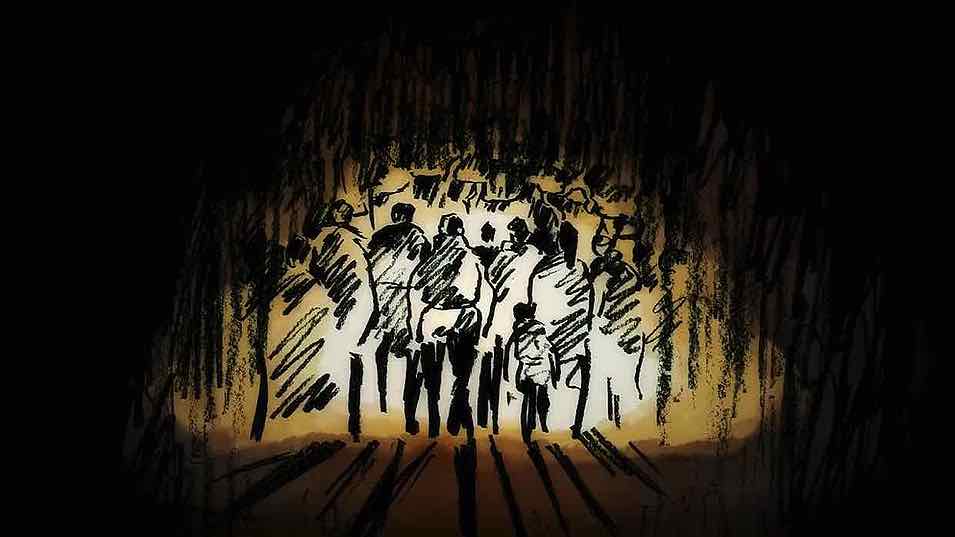 It may be my first of the season, but to say this premiere was a long time coming is an understatement. I’ve been predicting a Dungeon Meshi Anime for years, and I’m far from the only one. Not only was the manga – which started in 2014 – nominated for the Manga Taishou four straight years, but it was (and is) a genuinely big seller. As if all that weren’t enough, there was a series of animated commercials starting all the way back in 2017. Anime has had more than its share of Newman “what took you so long?” moments, but this is one of the more glaring of recent years.
It may be my first of the season, but to say this premiere was a long time coming is an understatement. I’ve been predicting a Dungeon Meshi Anime for years, and I’m far from the only one. Not only was the manga – which started in 2014 – nominated for the Manga Taishou four straight years, but it was (and is) a genuinely big seller. As if all that weren’t enough, there was a series of animated commercials starting all the way back in 2017. Anime has had more than its share of Newman “what took you so long?” moments, but this is one of the more glaring of recent years.
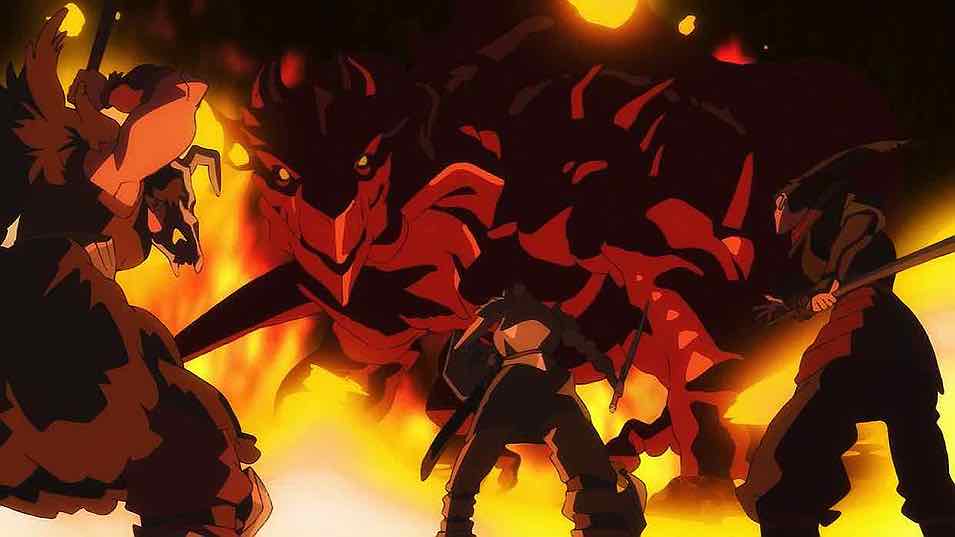 I guess none of that changes things – we’re here now, and better late than never. The manga ended recently, with the final two volumes released simultaneously last month and selling like gangbusters. That suggests we’re going to get a full adaptation, though at this point only 24 episodes have been announced. That’s certainly not enough for 14 volumes, but I have to imagine we’ll get at least one more cour to do this properly, though two would be even better.
I guess none of that changes things – we’re here now, and better late than never. The manga ended recently, with the final two volumes released simultaneously last month and selling like gangbusters. That suggests we’re going to get a full adaptation, though at this point only 24 episodes have been announced. That’s certainly not enough for 14 volumes, but I have to imagine we’ll get at least one more cour to do this properly, though two would be even better.
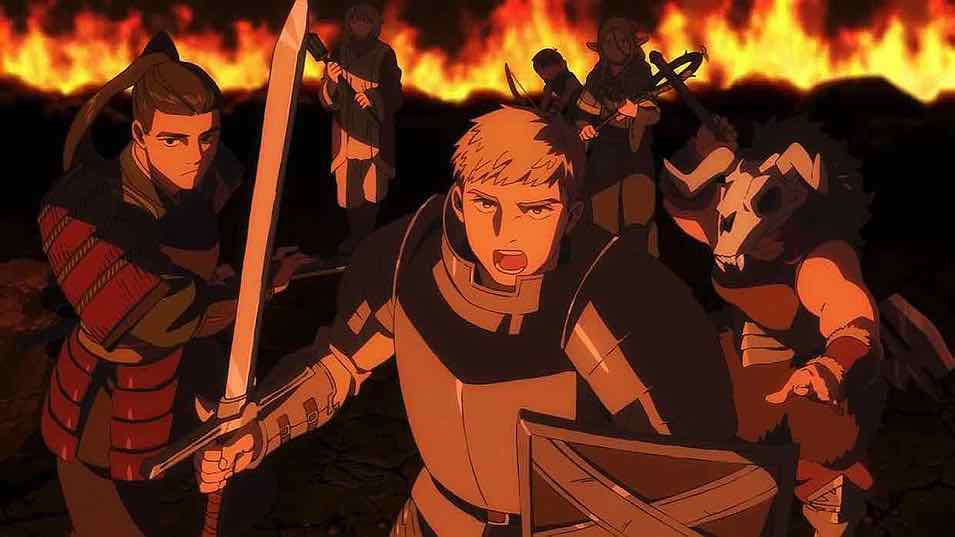 The folks in charge here are Trigger, which had been kind of an open secret since they did those CMs. I’ve an agnostic on Trigger despite my affection for Gridman/Dynazenon, but with the stuff Imaishi hasn’t been directly involved with the results have been better. Director Miyajima Yoshihiro did work under Amemiya Akira on those series, and there’s always been a sense that this is a passion project for Trigger. So on balance I wasn’t too worried, especially with the previews capturing the look of Kui Ryouko’s manga almost perfectly. And that instinct proved correct, as this was an excellent premiere – delivering the first Delicious in Dungeon experience exactly as I remember it and then some.
The folks in charge here are Trigger, which had been kind of an open secret since they did those CMs. I’ve an agnostic on Trigger despite my affection for Gridman/Dynazenon, but with the stuff Imaishi hasn’t been directly involved with the results have been better. Director Miyajima Yoshihiro did work under Amemiya Akira on those series, and there’s always been a sense that this is a passion project for Trigger. So on balance I wasn’t too worried, especially with the previews capturing the look of Kui Ryouko’s manga almost perfectly. And that instinct proved correct, as this was an excellent premiere – delivering the first Delicious in Dungeon experience exactly as I remember it and then some.
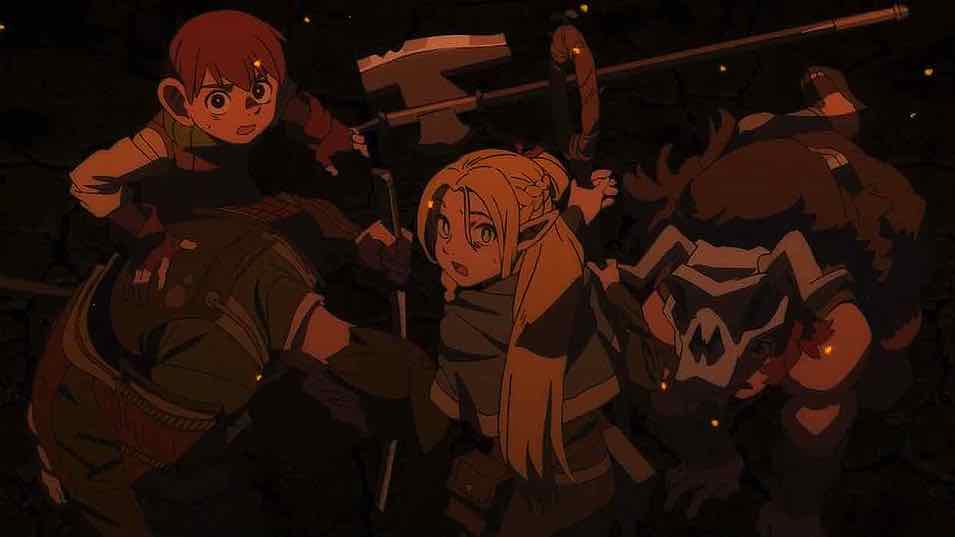 It strikes me that the experience in question is a very hard one to describe to someone who hasn’t experienced it. If you’ve played D&D (or its countless spinoffs) or know Lord of the Rings you’ll find a lot that’s familiar here – halfling thieves, elves and dwarves, magic users, goblins and orcs, dungeons with levels. But Dungeon Meshi is a subgenre unto itself. It’s very odd and often rather gross, but in a way I and many others find irresistibly charming. Food is the centerpiece of the premise, but we’re not talking about kaitenzushi or miso ramen here (though the forms the bizarre ingredients take are usually quite familiar in the end).
It strikes me that the experience in question is a very hard one to describe to someone who hasn’t experienced it. If you’ve played D&D (or its countless spinoffs) or know Lord of the Rings you’ll find a lot that’s familiar here – halfling thieves, elves and dwarves, magic users, goblins and orcs, dungeons with levels. But Dungeon Meshi is a subgenre unto itself. It’s very odd and often rather gross, but in a way I and many others find irresistibly charming. Food is the centerpiece of the premise, but we’re not talking about kaitenzushi or miso ramen here (though the forms the bizarre ingredients take are usually quite familiar in the end).
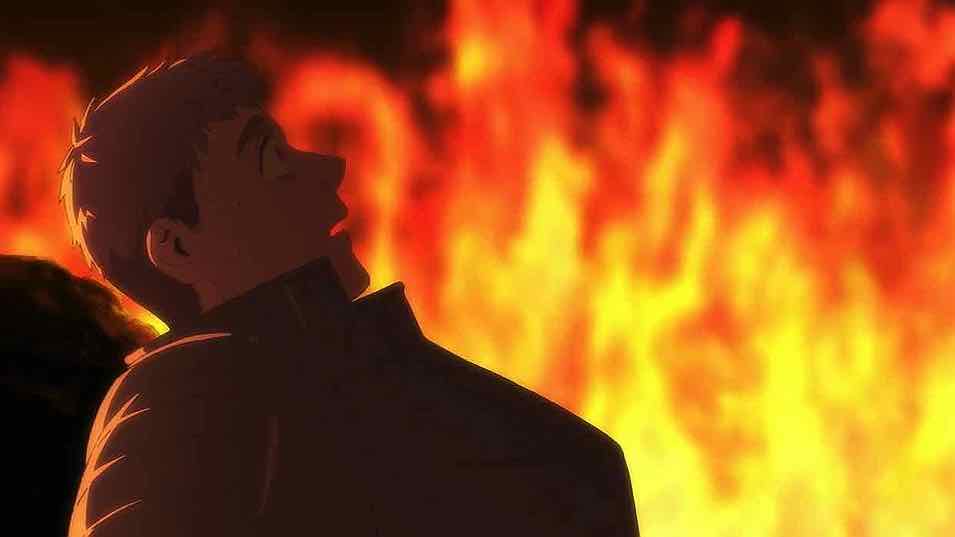 To attempt to explain the premise, a group of adventurers is in a dungeon when one of them, Falin (Hayami Saori) is eaten by a red dragon. She casts a spell in her final moments, and the rest of the party wakes up on the surface. This includes her brother Laios (Kumagai Kentarou), elven magic user Marcille (Senbongi Sayaka) and halfling thief Chilchuck (Tomari Asuna). It’s immediately clear that resurrection magic is a thing here, as Laios is immediately focused on rescuing his sister, though time seems to be of the essence as he’s concerned that they do so before she gets digested.
To attempt to explain the premise, a group of adventurers is in a dungeon when one of them, Falin (Hayami Saori) is eaten by a red dragon. She casts a spell in her final moments, and the rest of the party wakes up on the surface. This includes her brother Laios (Kumagai Kentarou), elven magic user Marcille (Senbongi Sayaka) and halfling thief Chilchuck (Tomari Asuna). It’s immediately clear that resurrection magic is a thing here, as Laios is immediately focused on rescuing his sister, though time seems to be of the essence as he’s concerned that they do so before she gets digested.
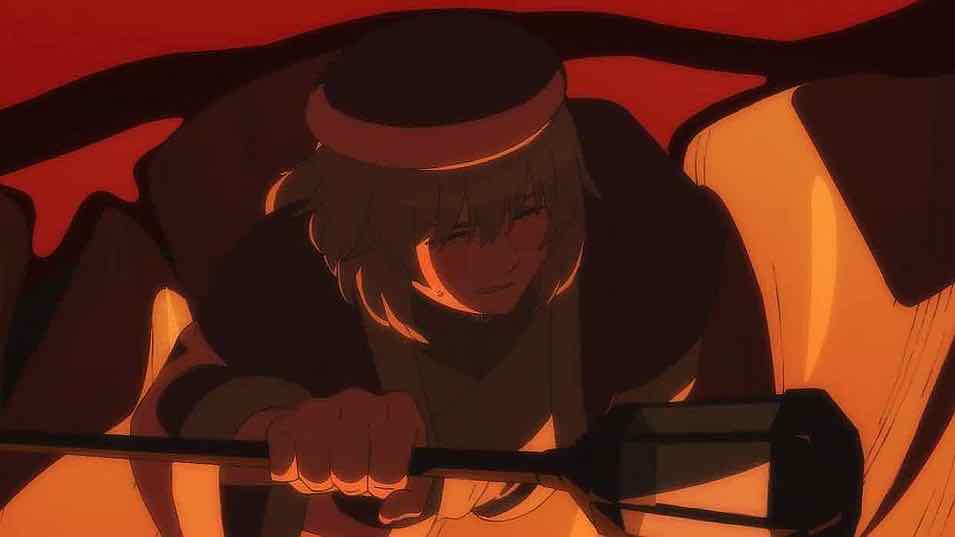 That’s when the weirdness really kicks in. Having lost most of their gear the party is skint, and Laios suggests that they scavenge in the dungeon like the monster residents do to save money. However, it soon enough becomes clear that he has a fetish for eating weird things and he’s thrilled at having an excuse to indulge it. Chilchuck is ever-snarky but not overtly squeamish about this; Marcille, on the other hand, is weirded and grossed out and resists with all her vocal and facial powers. Laios’ first attempts at preparing a giant scorpion and walking mushroom prove disastrous, but fortunately the passing dwarf Senshi (Naka Hiroshi) steps in to offer his considerable culinary expertise, soon preparing a hot pot even Marcille is forced to admit is delicious.
That’s when the weirdness really kicks in. Having lost most of their gear the party is skint, and Laios suggests that they scavenge in the dungeon like the monster residents do to save money. However, it soon enough becomes clear that he has a fetish for eating weird things and he’s thrilled at having an excuse to indulge it. Chilchuck is ever-snarky but not overtly squeamish about this; Marcille, on the other hand, is weirded and grossed out and resists with all her vocal and facial powers. Laios’ first attempts at preparing a giant scorpion and walking mushroom prove disastrous, but fortunately the passing dwarf Senshi (Naka Hiroshi) steps in to offer his considerable culinary expertise, soon preparing a hot pot even Marcille is forced to admit is delicious.
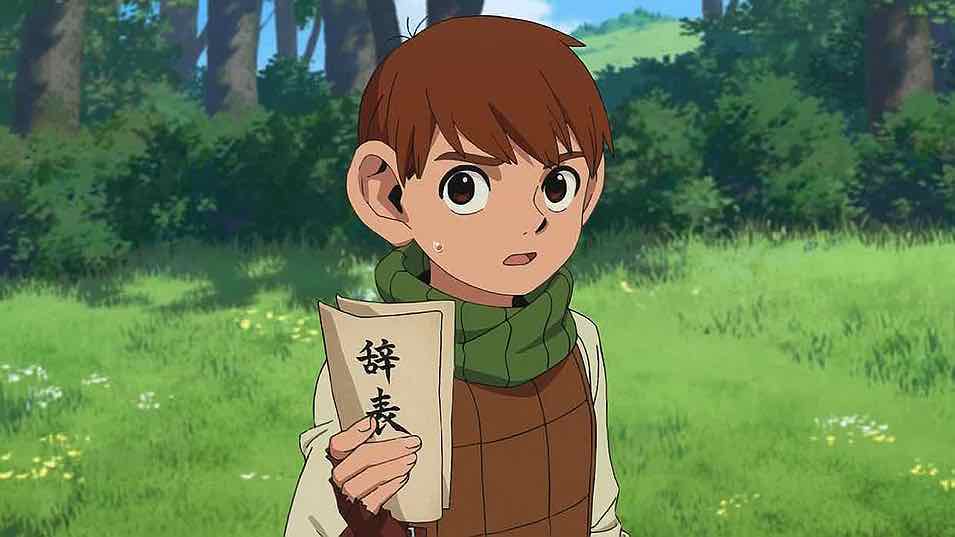 I won’t spoil the story, but what you see here is not a one-off occurrence – there’s a lot of cooking and eating weird shit in Dungeon Meshi, and Marcille freaking out about it. The attention to detail on this is striking (the manga offers Senshi’s recipes, and the anime employs noted food artist Momiji Mao as “Food Designer“), and the commitment to the conceit total. That’s a big part of the series’ appeal, along with the endearing quirkiness of the main cast. Laios is just a weird dude but incredibly straightforward, Marcille is a kindly but neurotic mess, and Chilchuck views the world through a jaded and cynical lens and isn’t afraid to let you know about it. Then there’s Senshi, whose dedication to matters both gourmet and gourmand is absolute.
I won’t spoil the story, but what you see here is not a one-off occurrence – there’s a lot of cooking and eating weird shit in Dungeon Meshi, and Marcille freaking out about it. The attention to detail on this is striking (the manga offers Senshi’s recipes, and the anime employs noted food artist Momiji Mao as “Food Designer“), and the commitment to the conceit total. That’s a big part of the series’ appeal, along with the endearing quirkiness of the main cast. Laios is just a weird dude but incredibly straightforward, Marcille is a kindly but neurotic mess, and Chilchuck views the world through a jaded and cynical lens and isn’t afraid to let you know about it. Then there’s Senshi, whose dedication to matters both gourmet and gourmand is absolute.
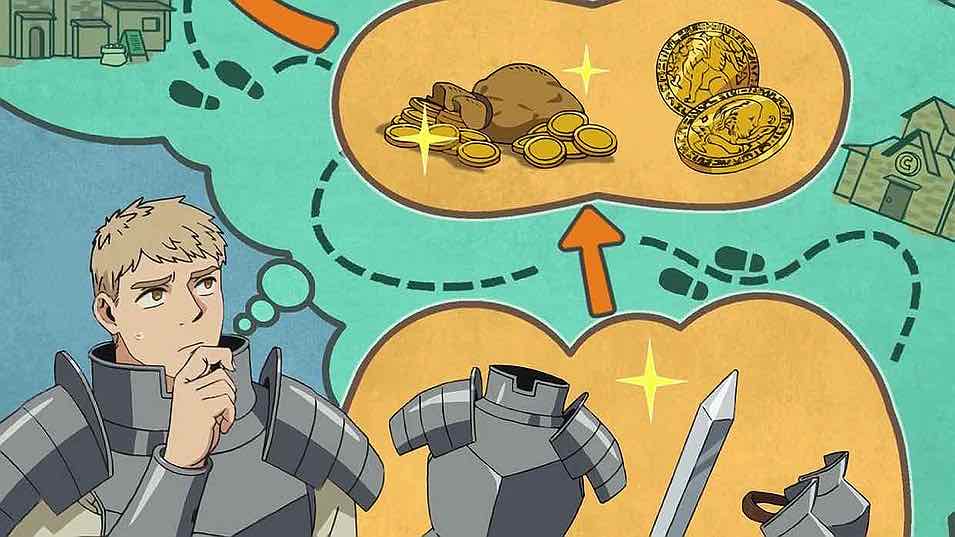 All these characters (and more) are greatly entertaining goofballs, with a wonderful chemistry. This premiere shows that off very well, and the look is pretty spot-on – quite Gainax in many ways, as SSSS. etc. was. Tone is very important with Delicious in Dungeon and the anime seems to have gotten that just about right. These early days are establishing shots basically, offering a mere taste of the feast to come, but if they don’t draw you in what comes later isn’t really going to work. I couldn’t have asked for much more from this first episode, and all indications are that Miyajima and his staff are going to deliver a proper take on this series, provided they get the time to do so.
All these characters (and more) are greatly entertaining goofballs, with a wonderful chemistry. This premiere shows that off very well, and the look is pretty spot-on – quite Gainax in many ways, as SSSS. etc. was. Tone is very important with Delicious in Dungeon and the anime seems to have gotten that just about right. These early days are establishing shots basically, offering a mere taste of the feast to come, but if they don’t draw you in what comes later isn’t really going to work. I couldn’t have asked for much more from this first episode, and all indications are that Miyajima and his staff are going to deliver a proper take on this series, provided they get the time to do so.
OP: “Sleep Walking Orchestra” by BUMP OF CHICKEN


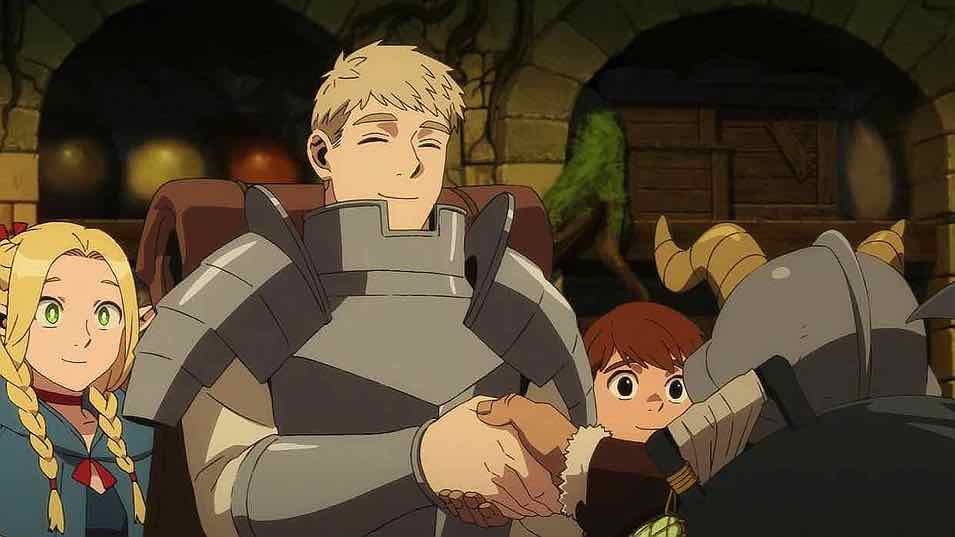
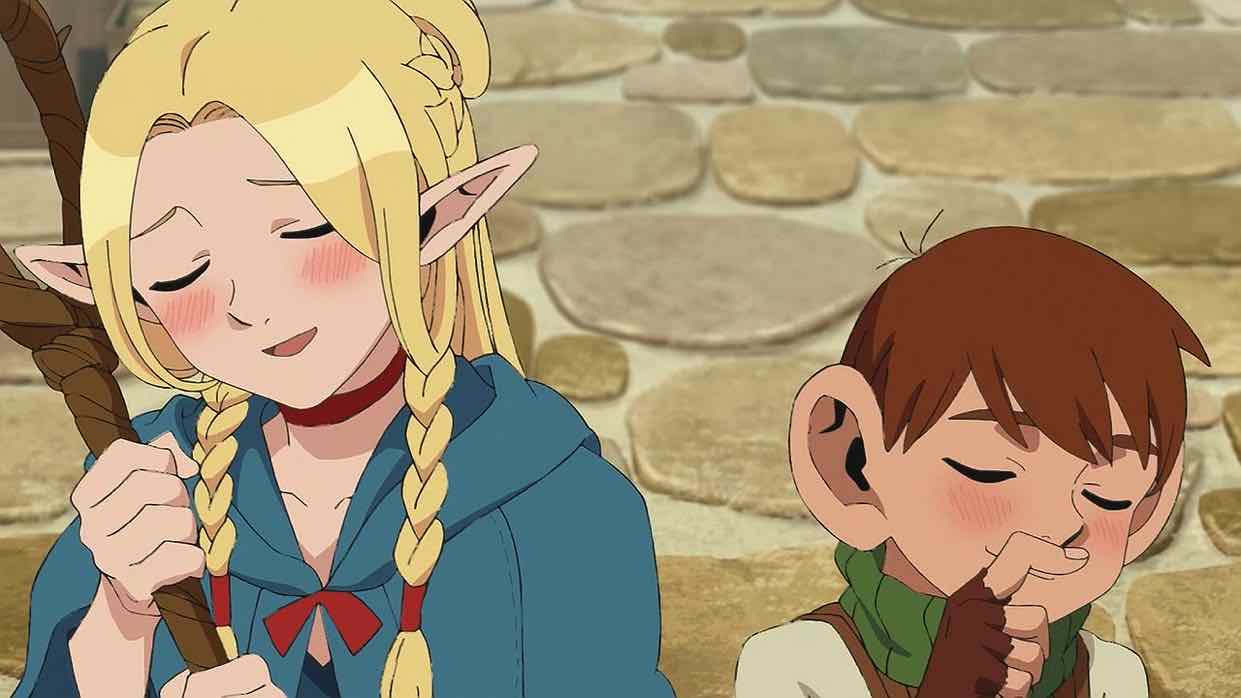
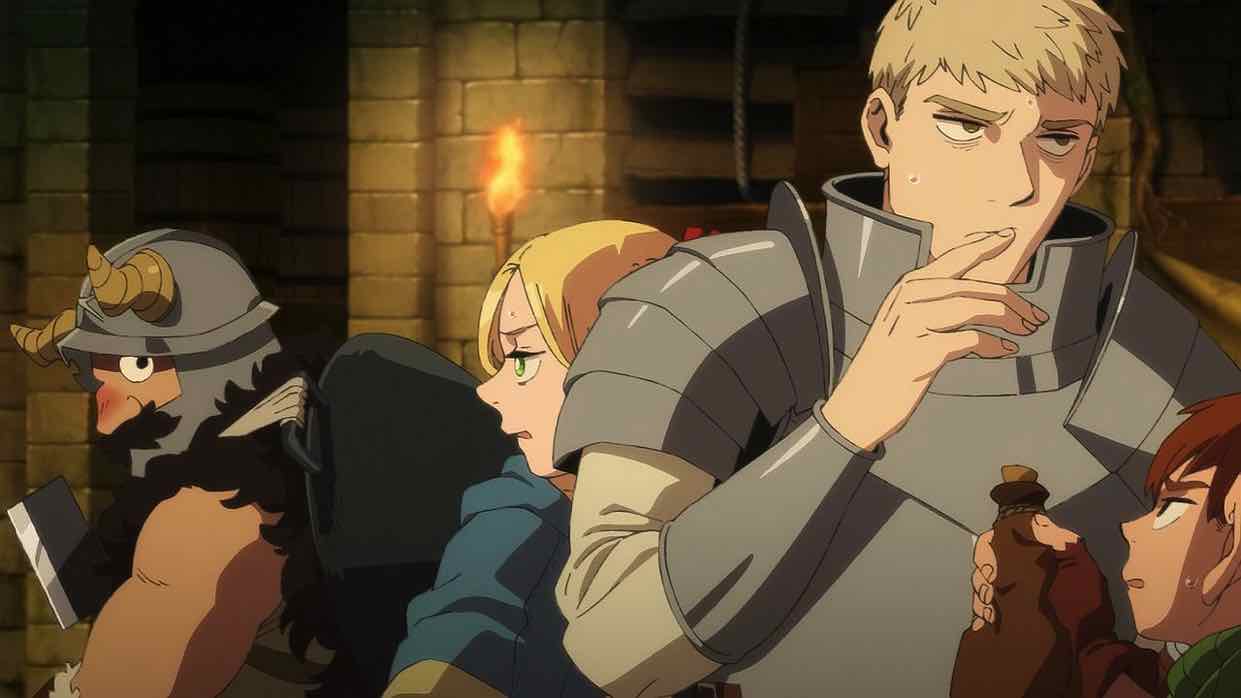
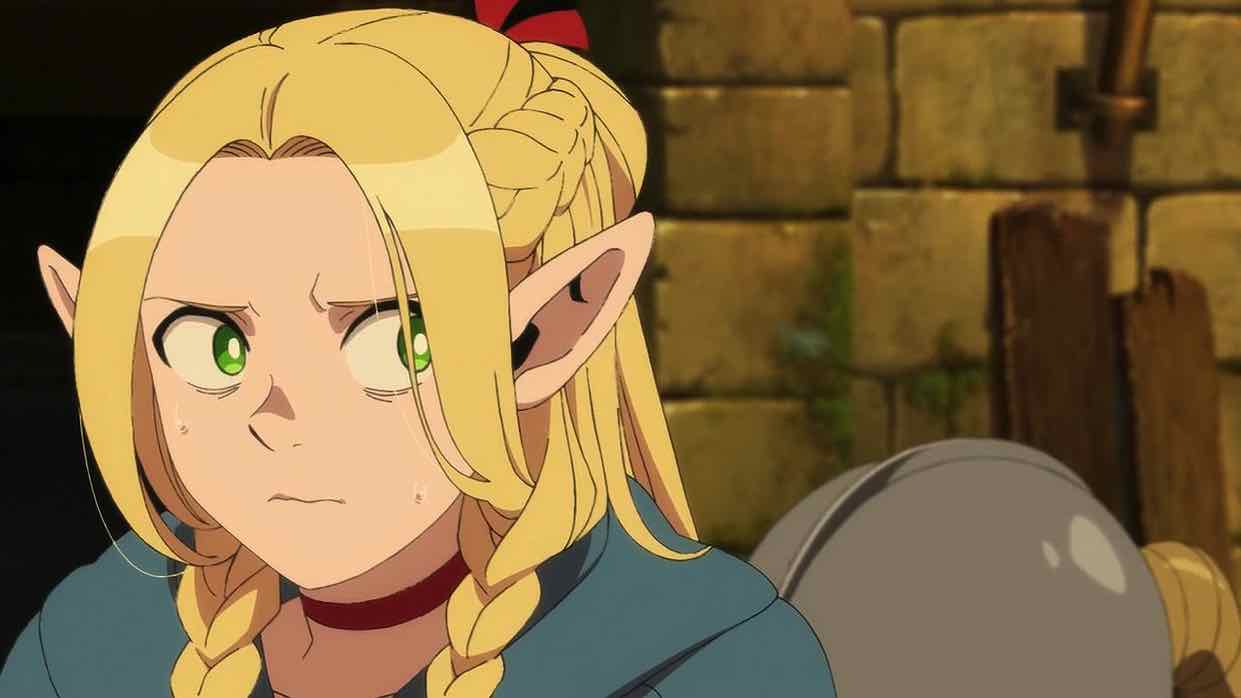
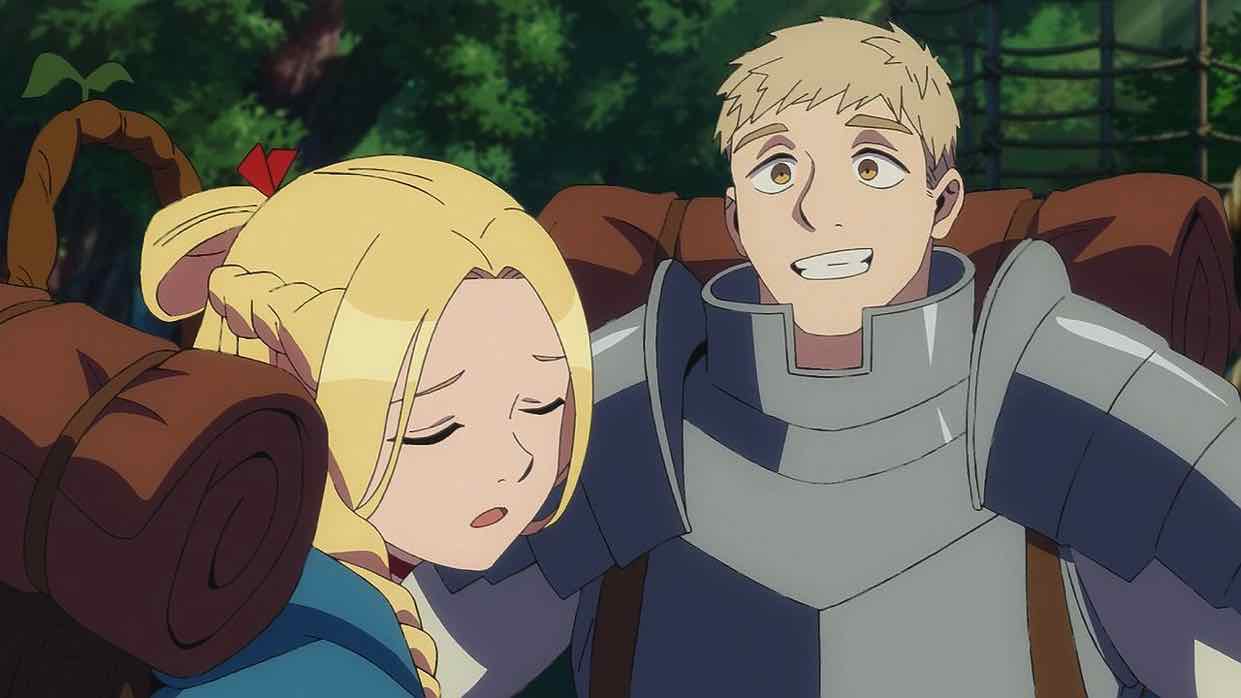
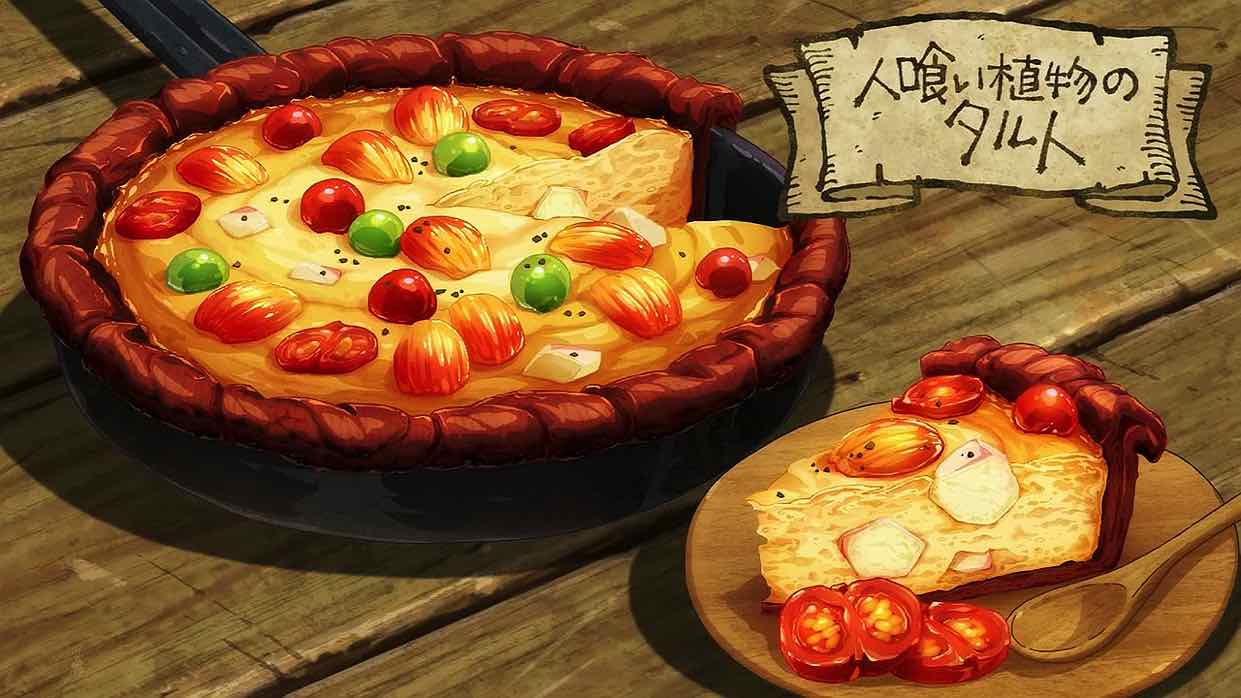
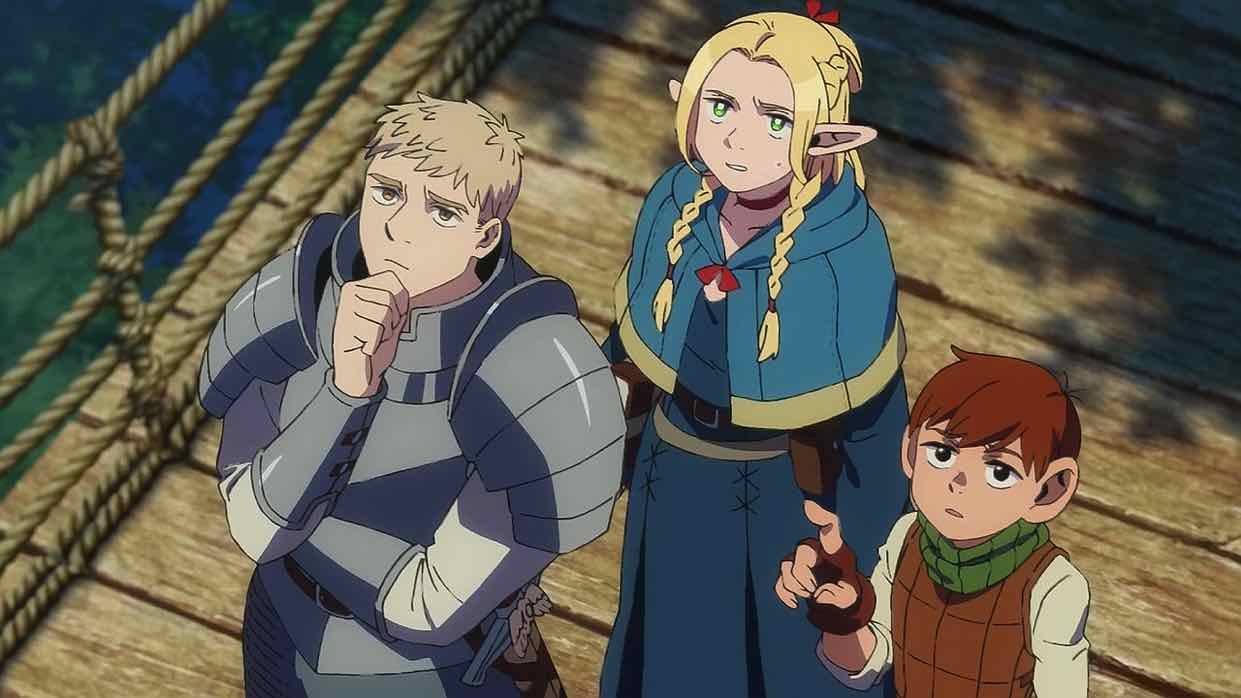
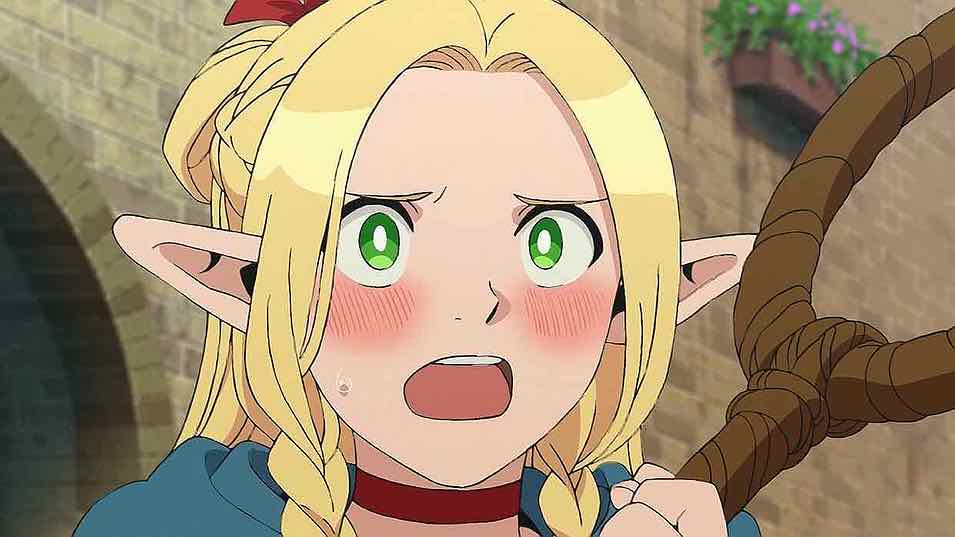
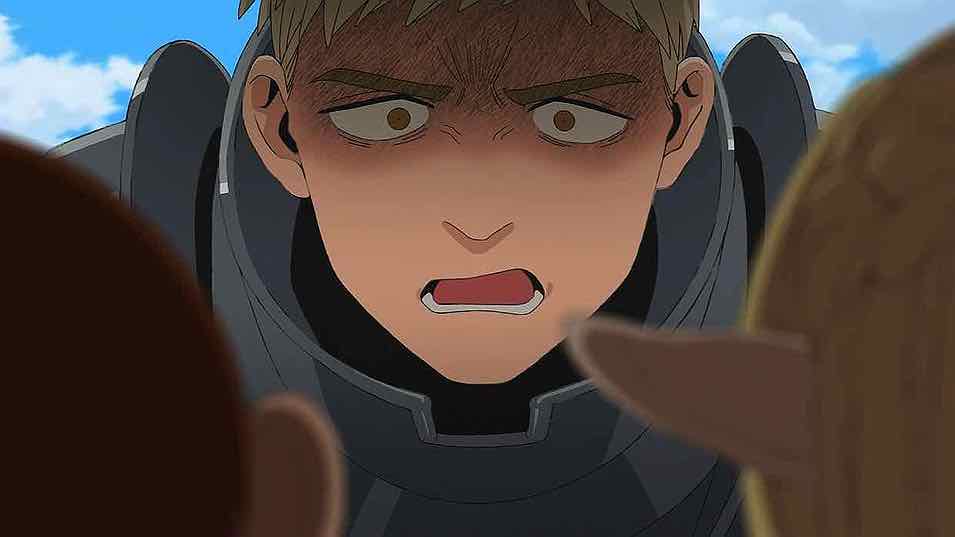
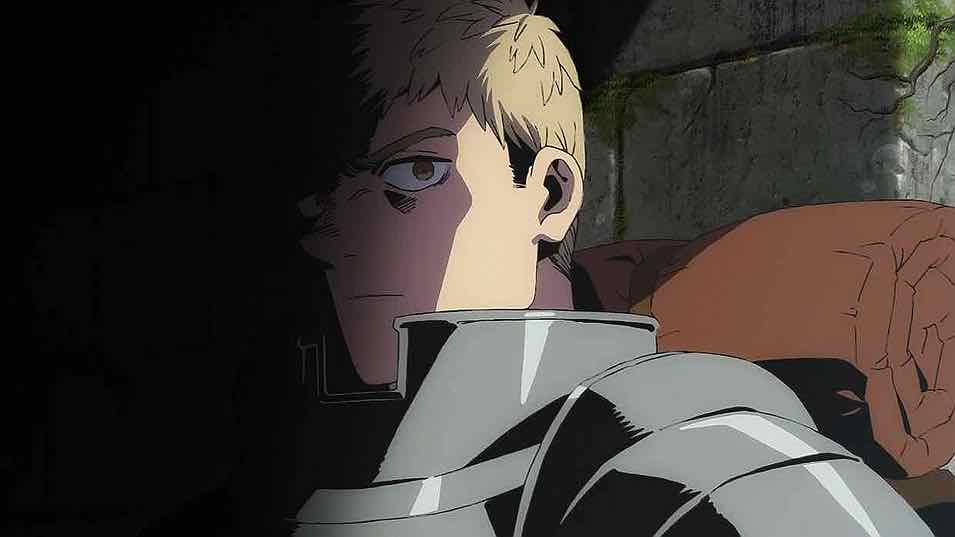
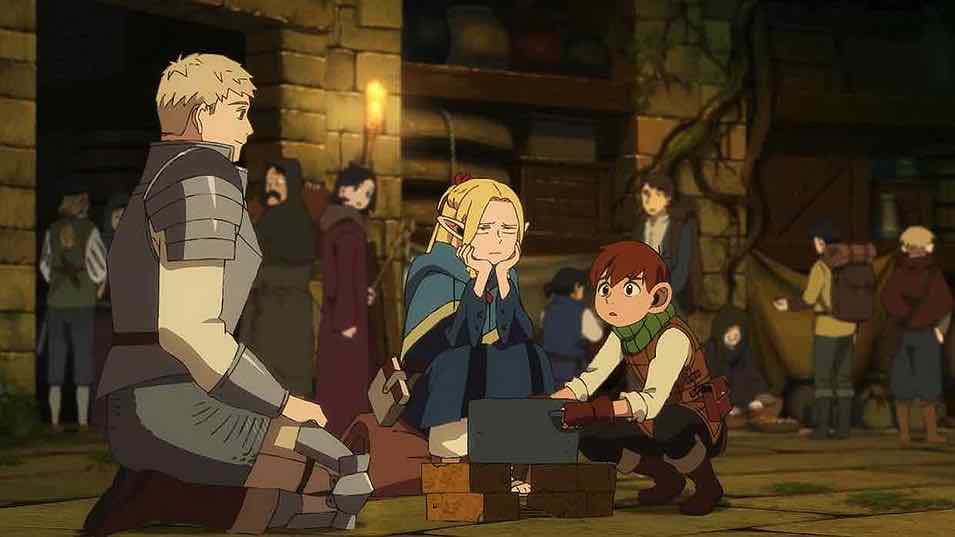
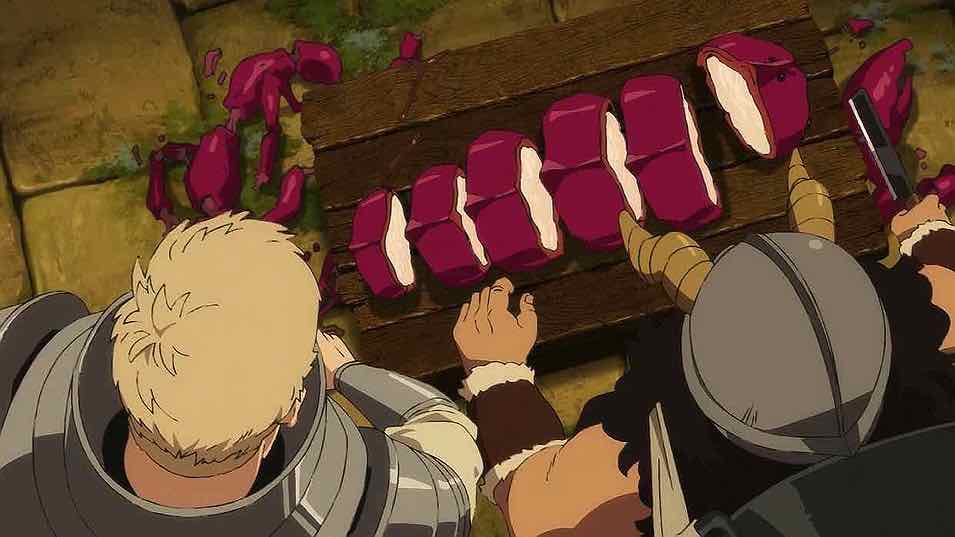
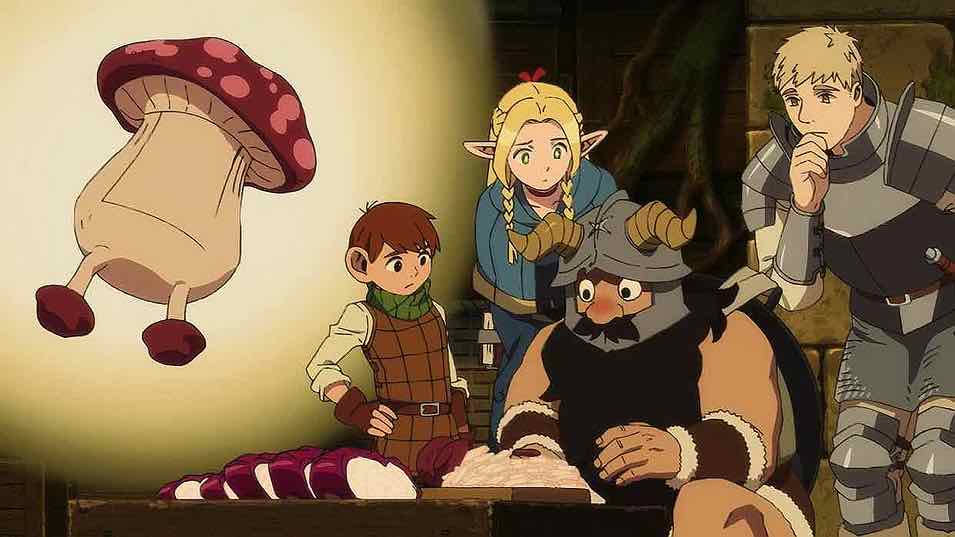
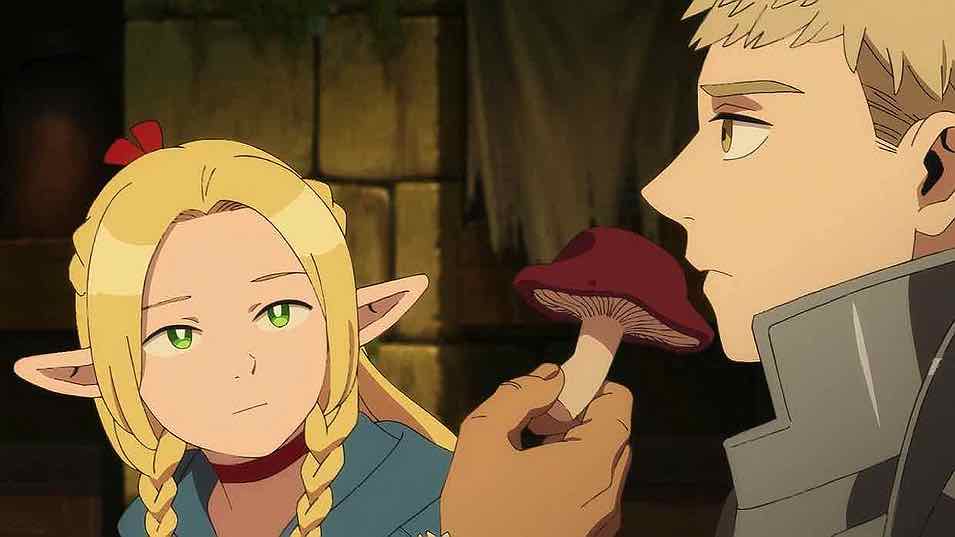
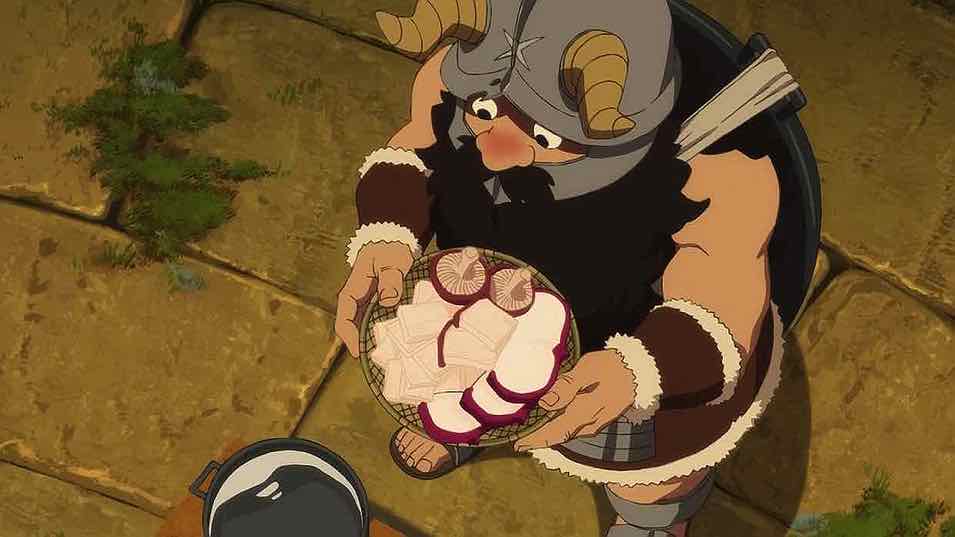
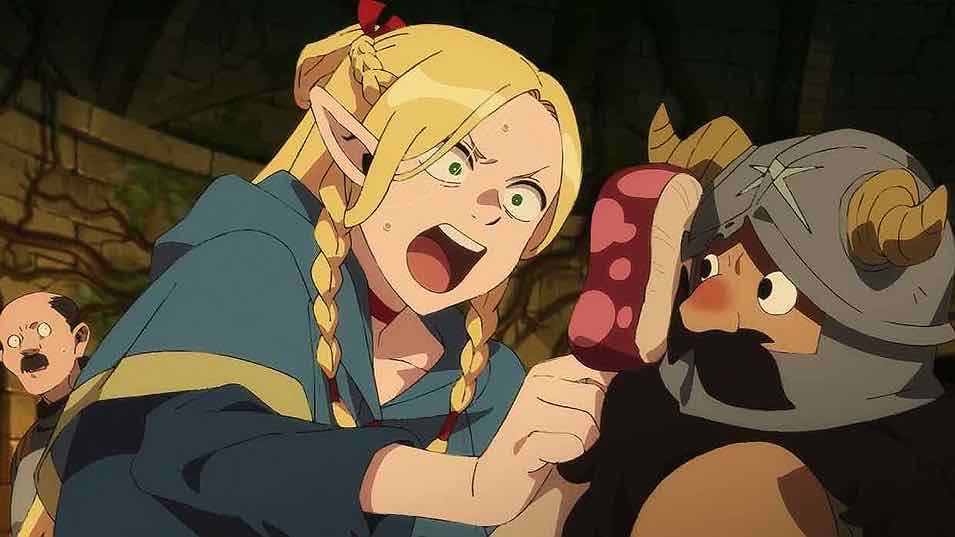
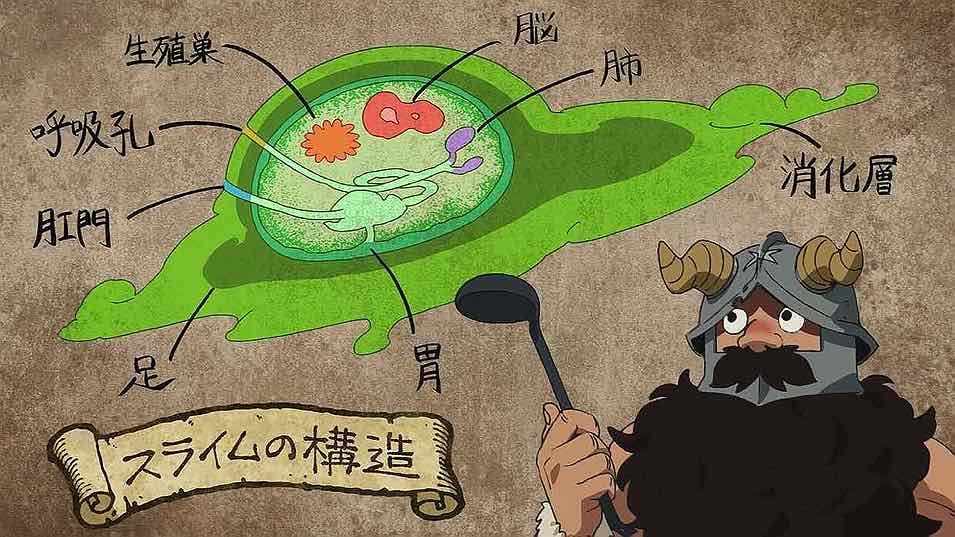
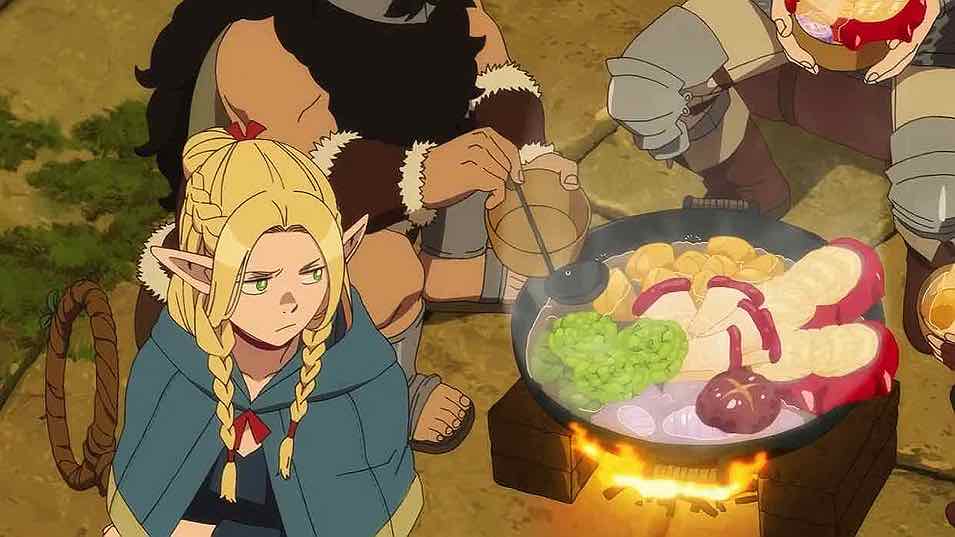
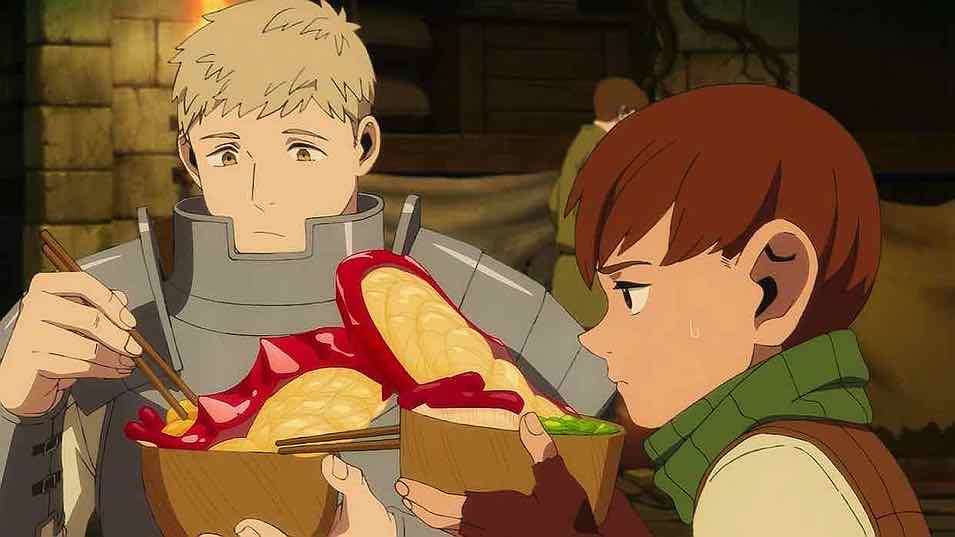
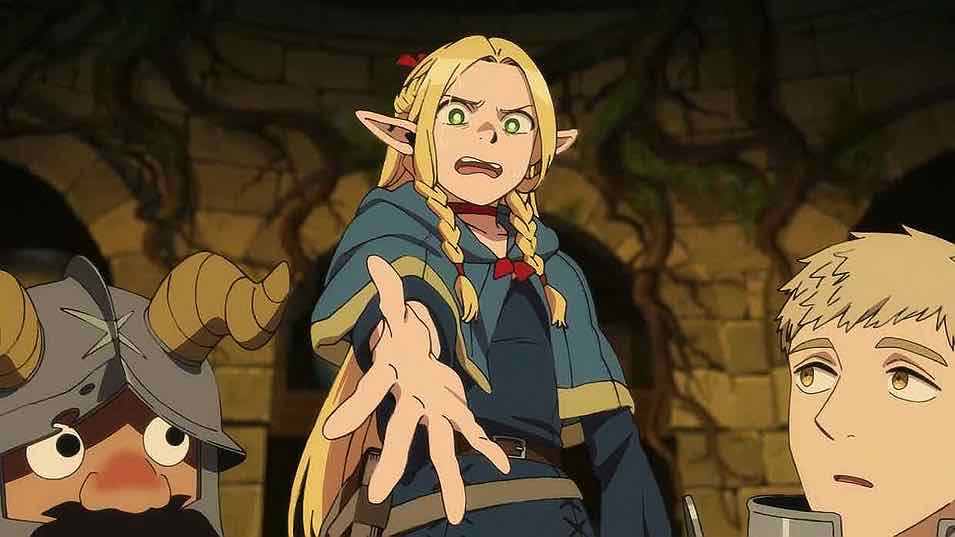
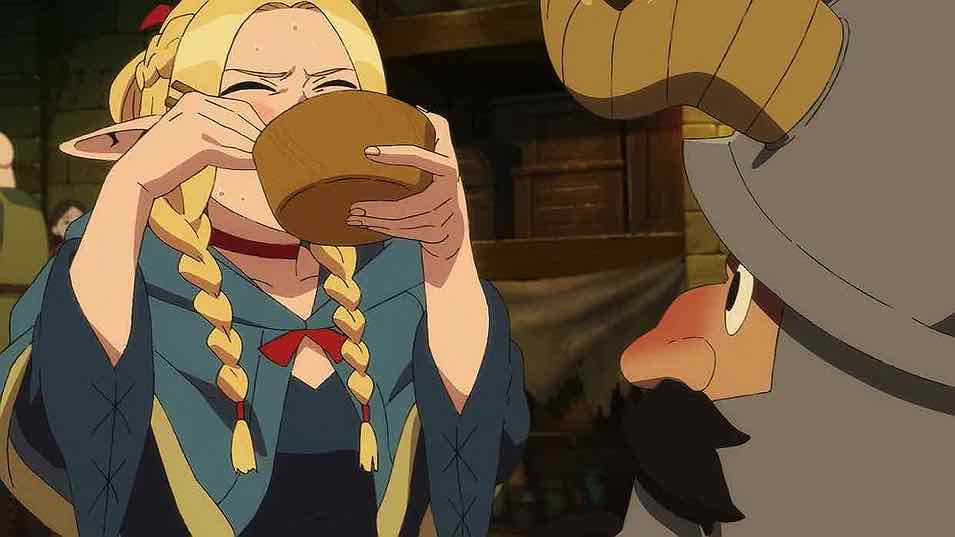
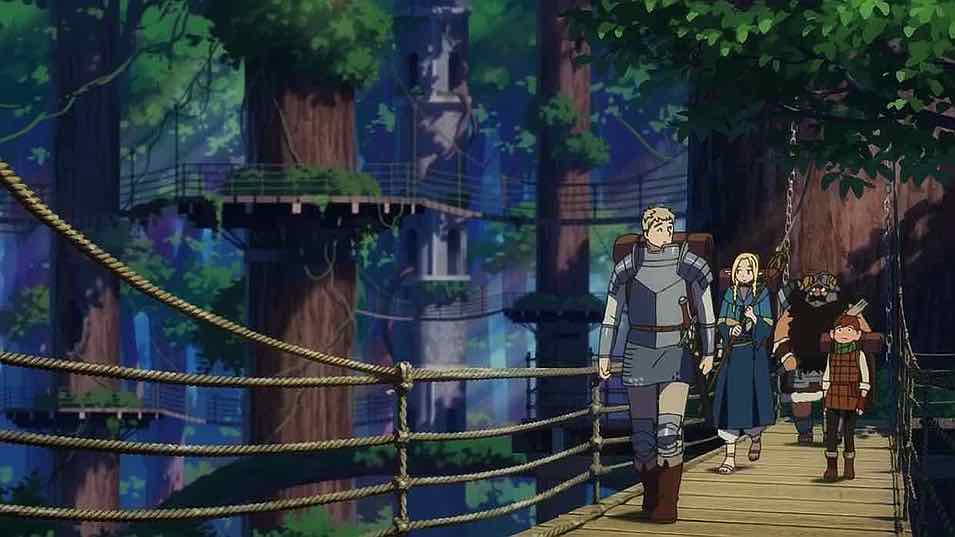
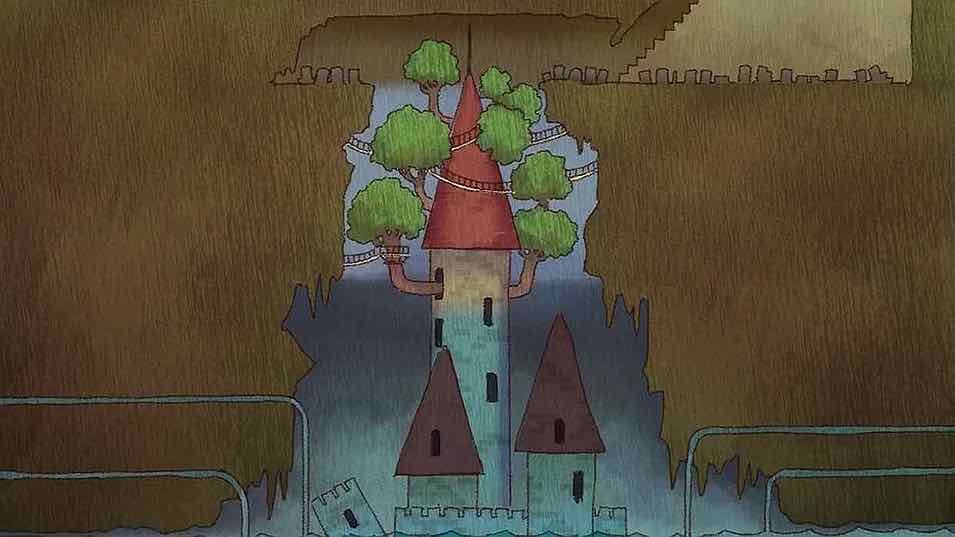
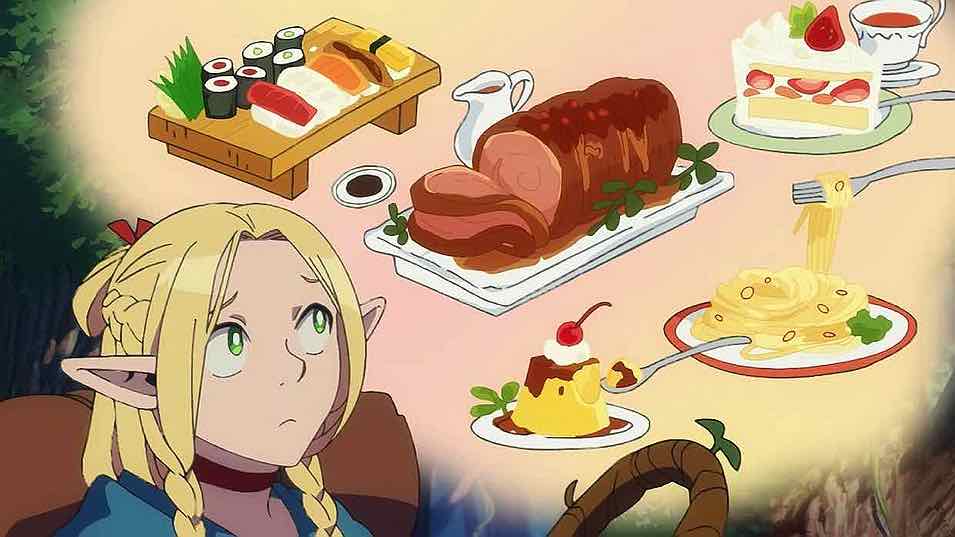
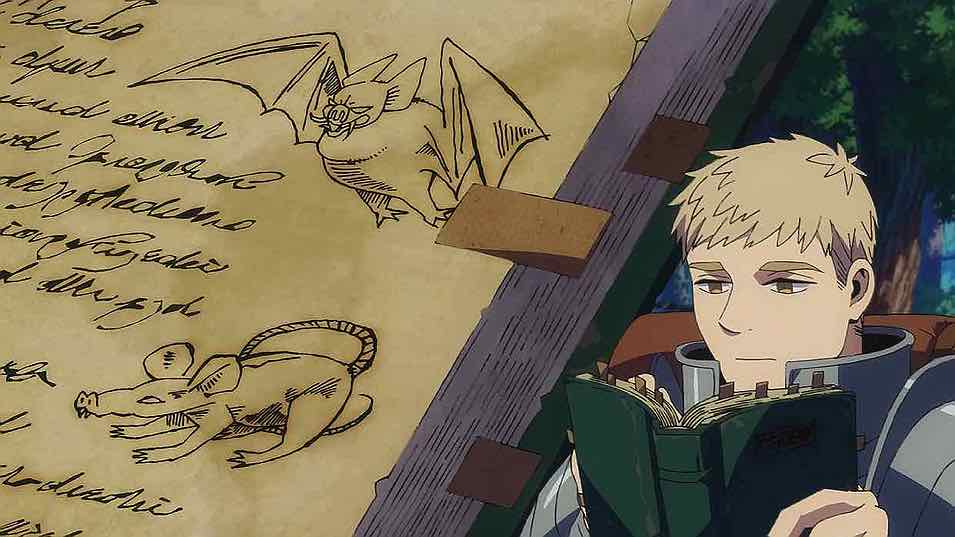
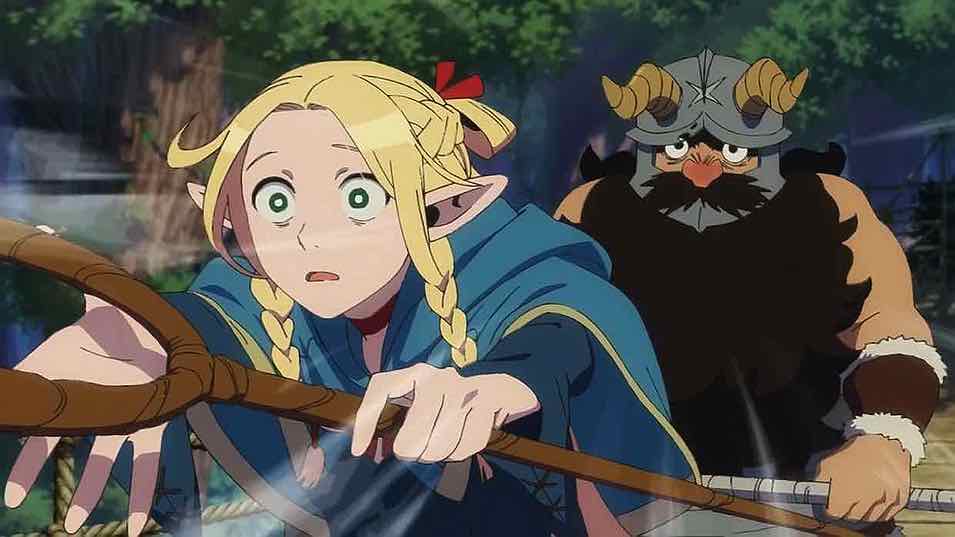
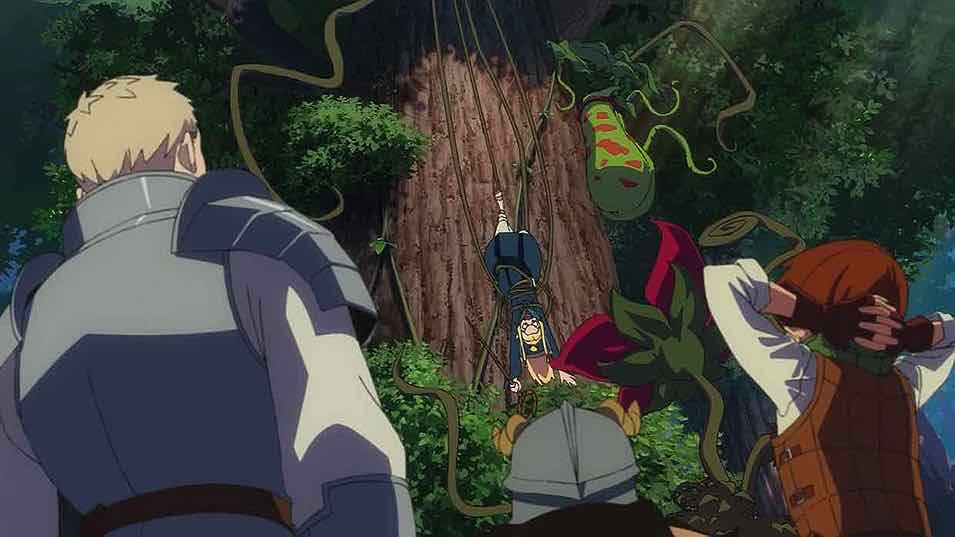
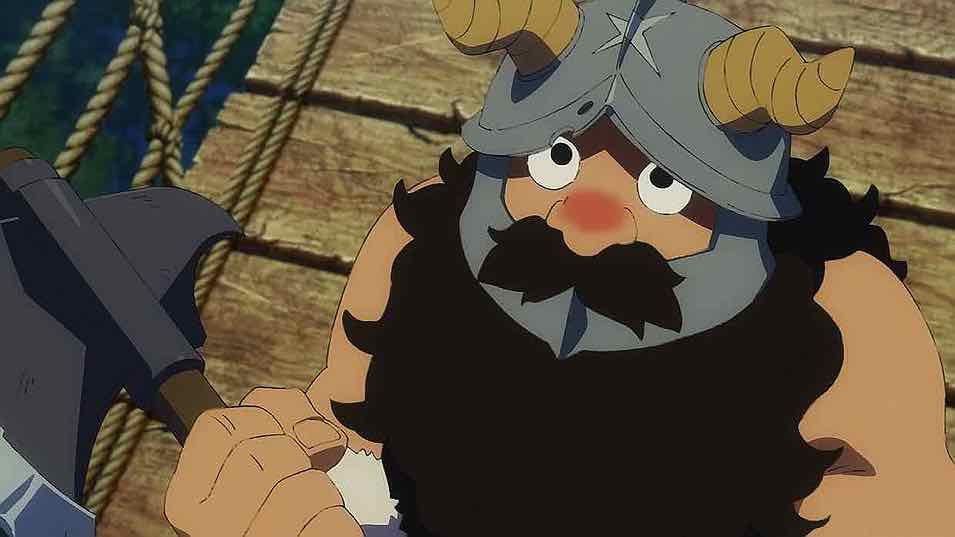
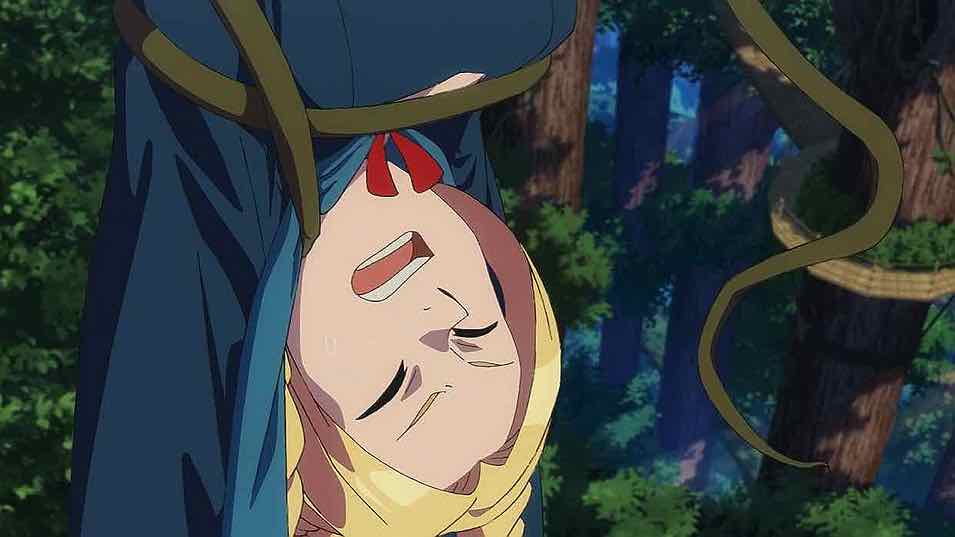
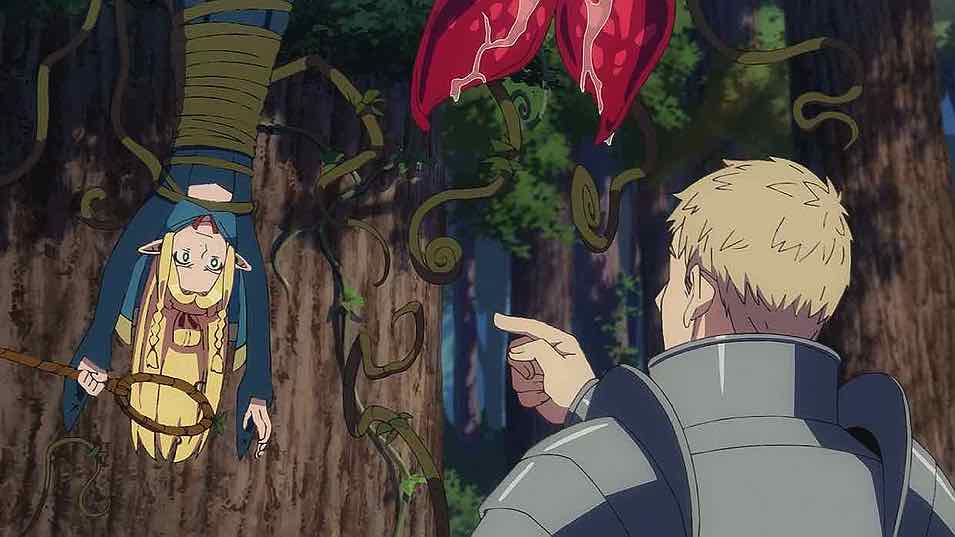
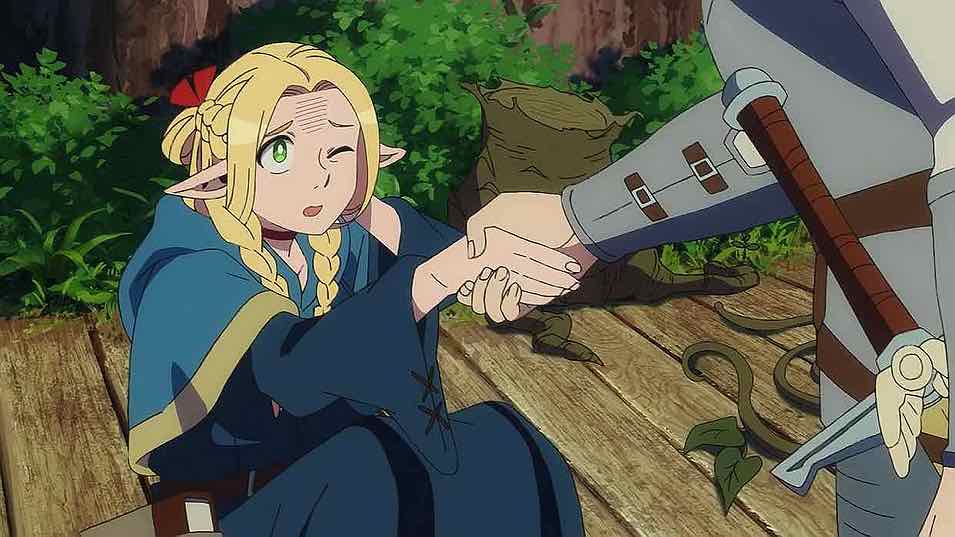
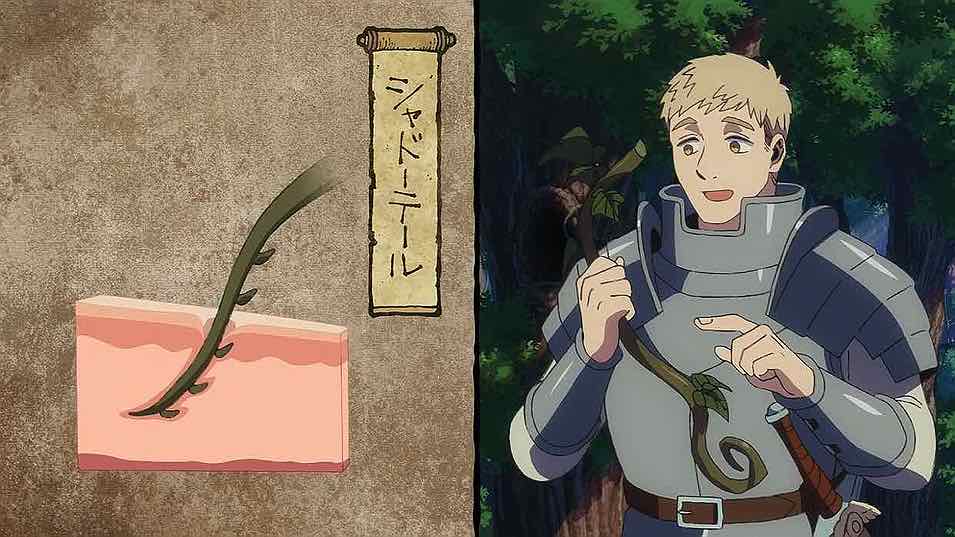
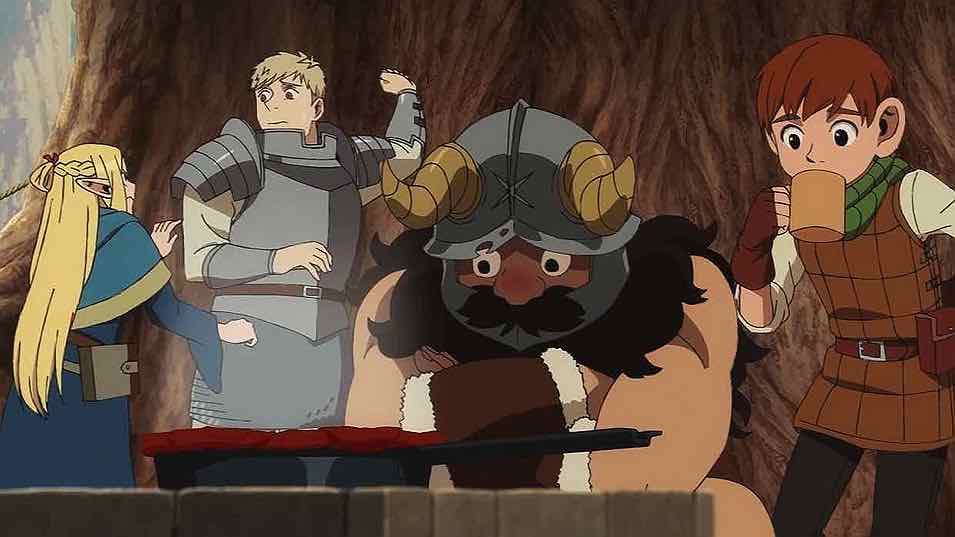
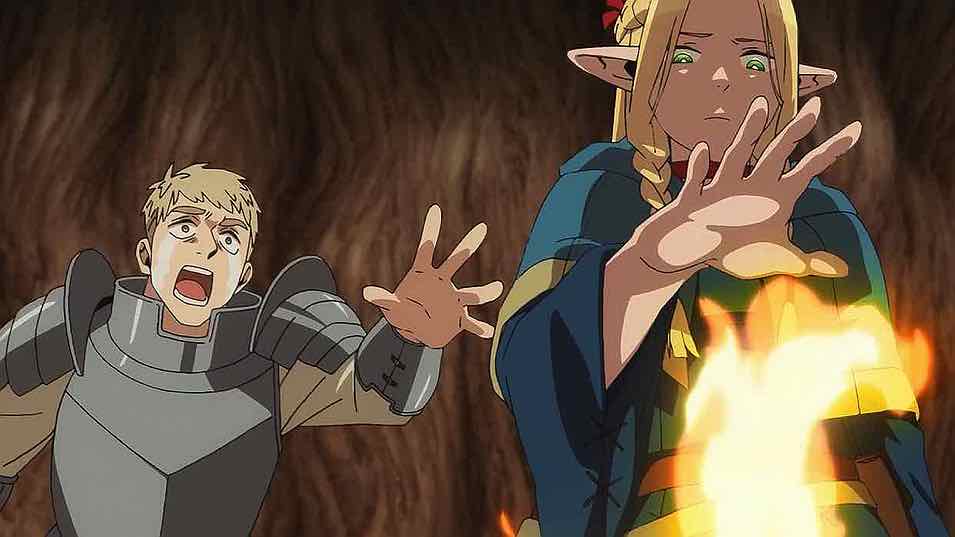
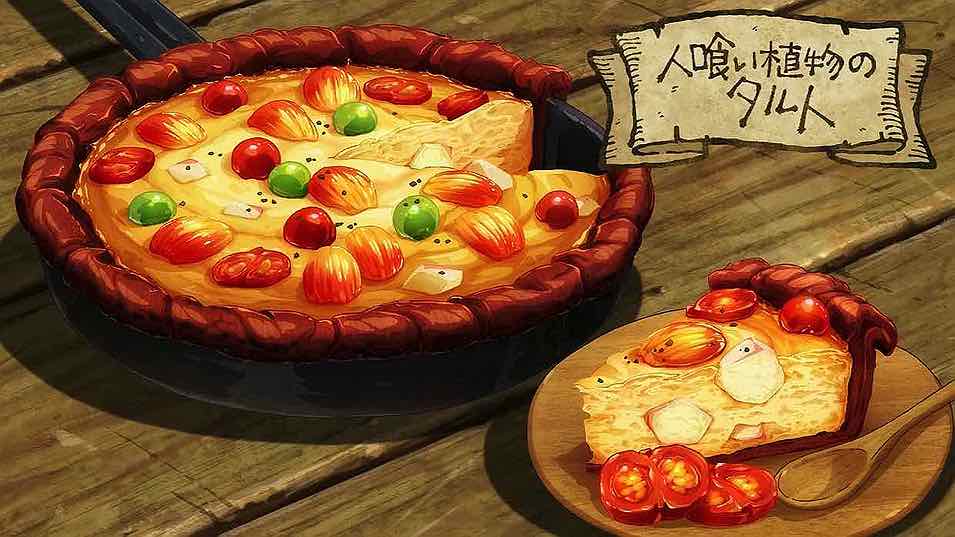
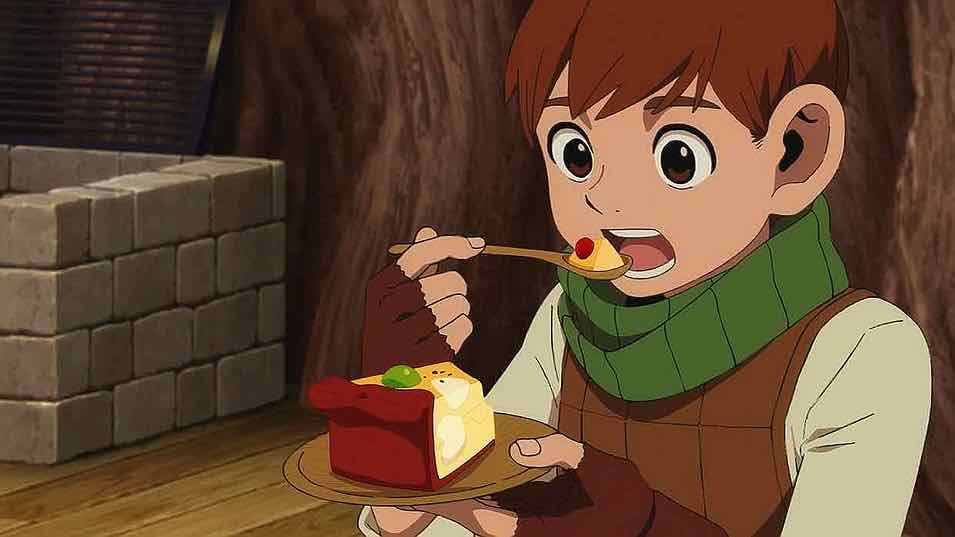
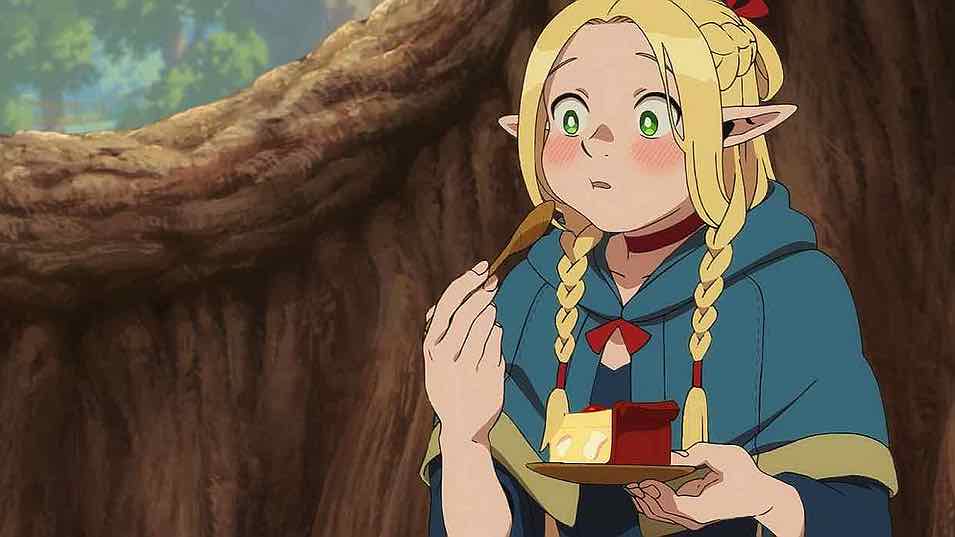
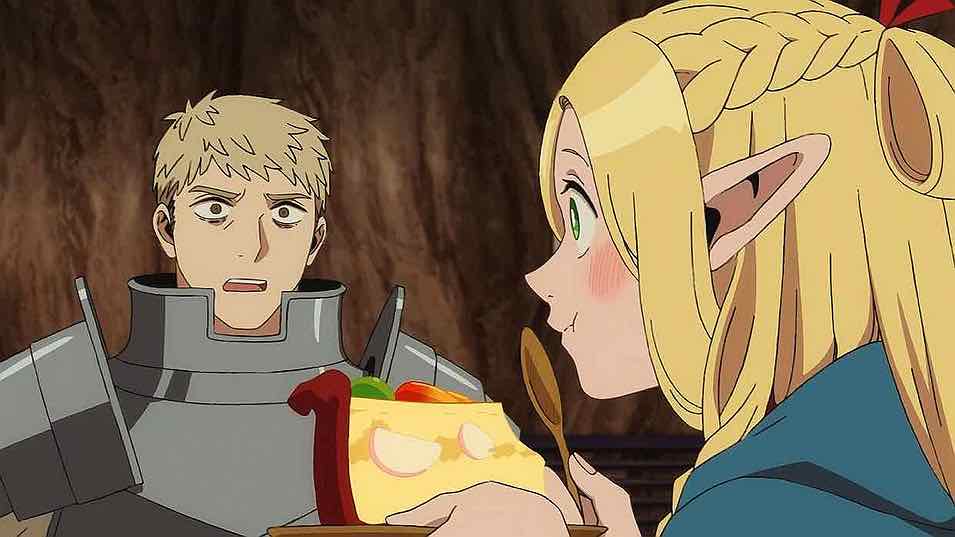
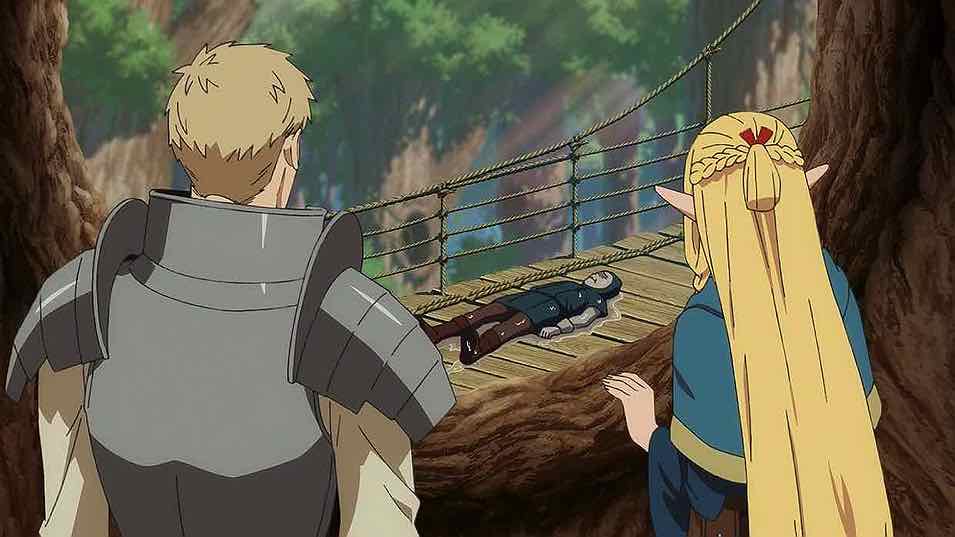
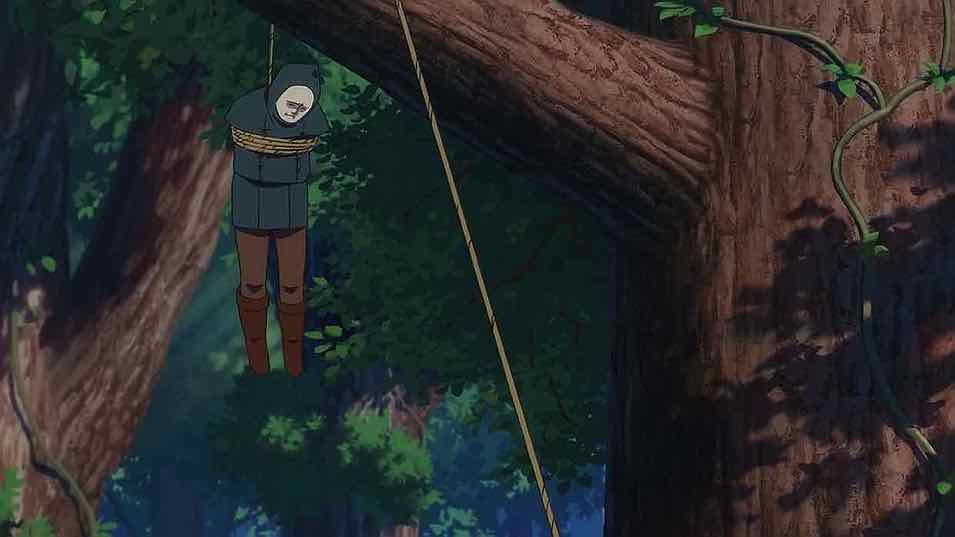
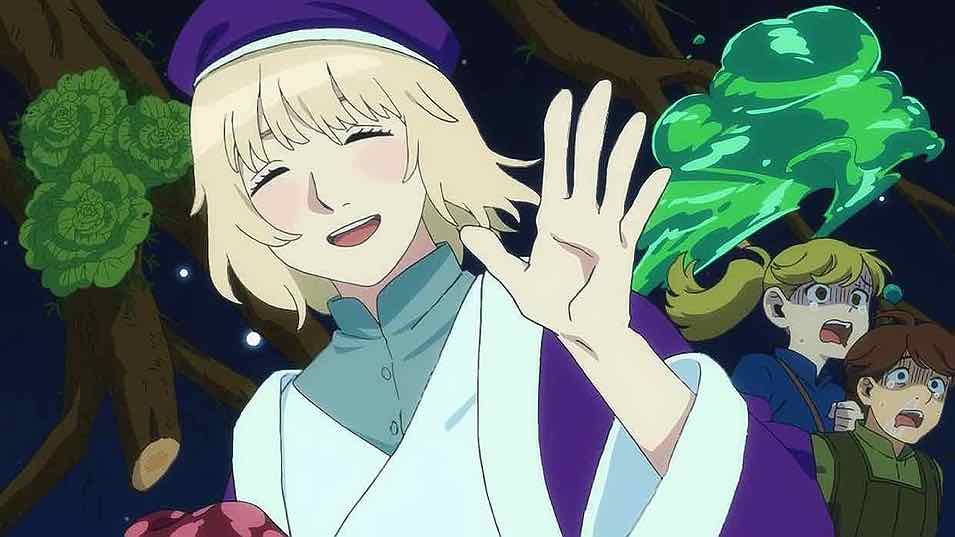
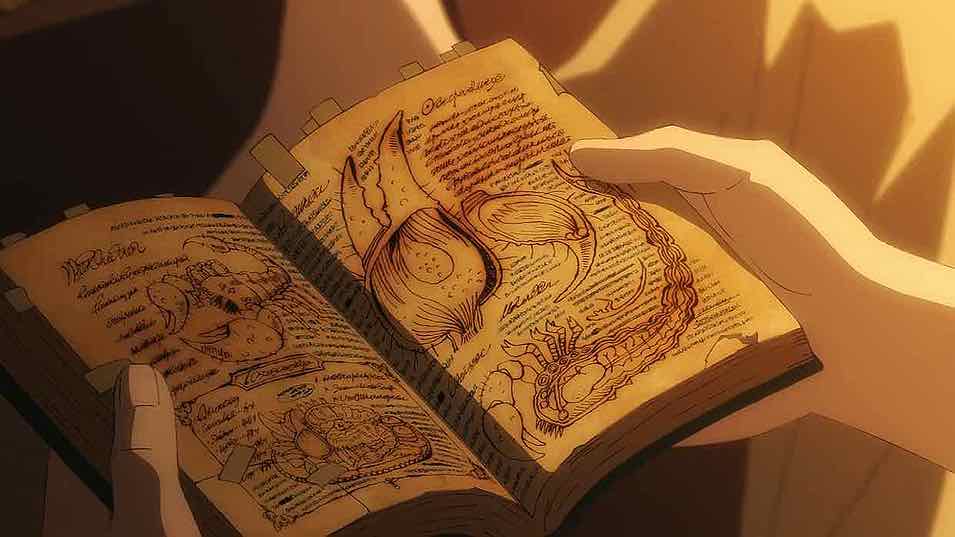
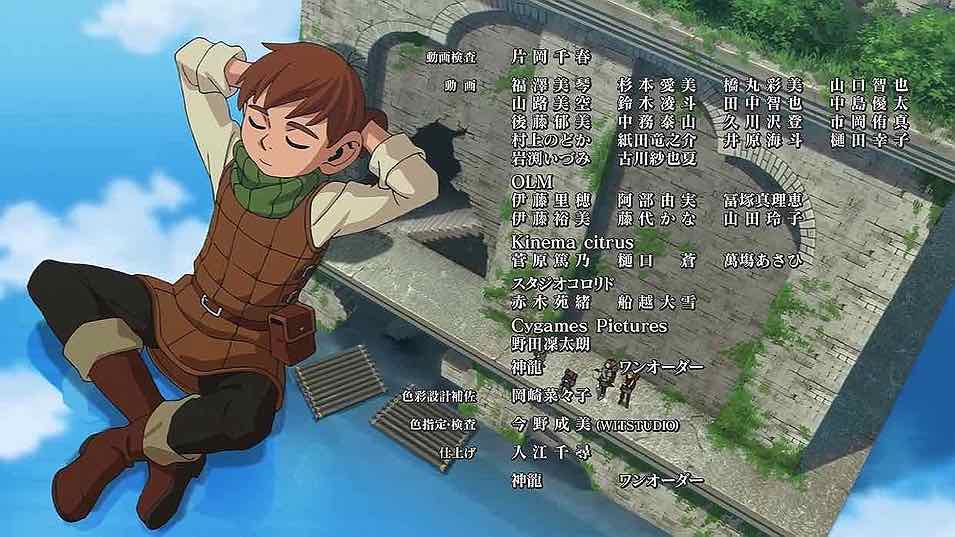
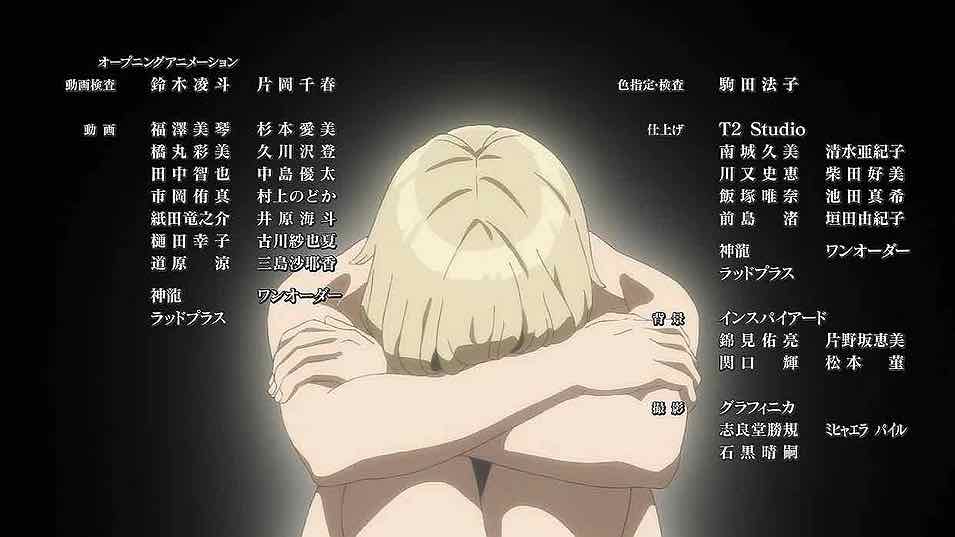
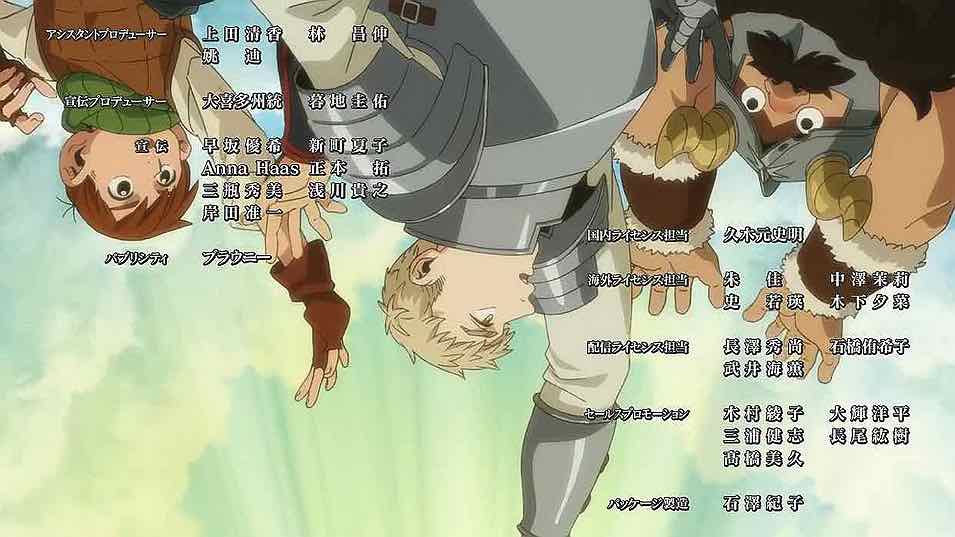
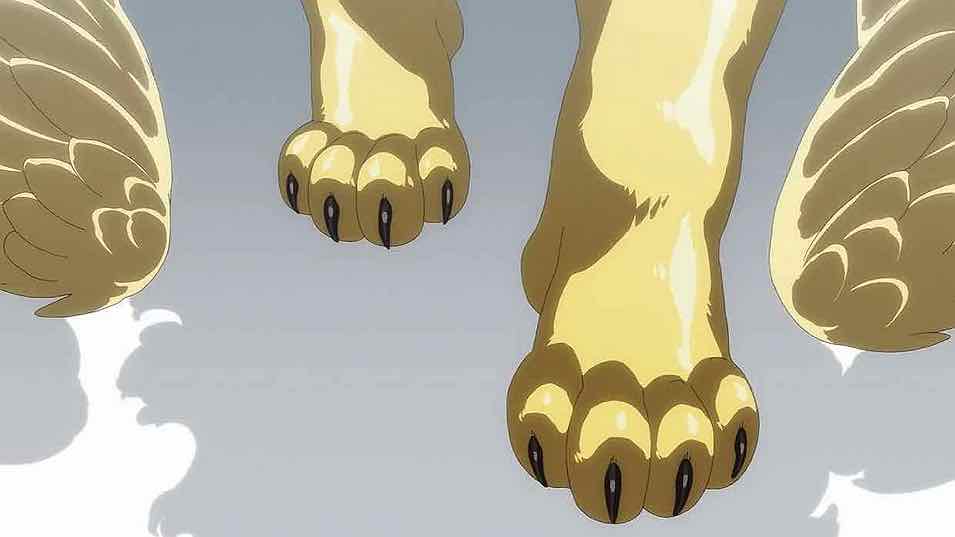




Raikou
January 5, 2024 at 12:11 pmExcellent first episode. I’ve been trying to read the manga but always postpone it. This is my kind of anime.
Been a while since I heard Senbongi, she’s pretty good at conveying Marcille’s neurotic side.
SeijiSensei
January 5, 2024 at 9:34 pmI have to say the concept has zero appeal, especially for someone like me who has always been a picky eater. I guess it’s worth a shot after reading this review.
Guardian Enzo
January 5, 2024 at 9:43 pmHey, they hired a specialist mangaka just to make the food look tasty!
toroidal
January 6, 2024 at 12:20 pmWhat’s most interesting to me is that while most people liked it, the ones that didn’t or liked it relatively less seem to have a similar specific criticism in mind. Namely, they couldn’t properly vibe with how urgent the rescue mission is with the overall vibe of the rest of the show. It almost reminds me of the term “ludonarrative dissonance” even though it isn’t specifically a game.
Rob Barrett
January 6, 2024 at 2:45 pmIt’s a pitch perfect adaptation of the early chapters of the manga.